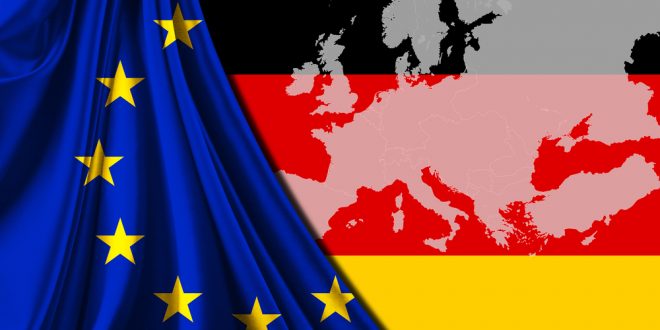S&P Global composite PMI fell to 50.1 in July, attributed to the lack of growth of business activity in Germany and France. Eurozone business activity grinds to a halt amid surprise slump in Germany.
Eurozone private-sector activity barely grew this month as its top economy Germany unexpectedly slumped, the latest purchasing managers index (PMI) for the EU shows. S&P Global composite PMI fell to 50.1 in July, according to data published on Wednesday. While that’s above the 50 level that signals growth, it’s the worst reading since February and worse than economists had predicted in a Bloomberg survey, which saw the measure holding steady at last month’s 50.9.
That shortfall can be attributed to Germany, which surprisingly contracted, dropping below the vital threshold for the first time since March. France also failed to grow showing a reading of 49.5.
According to analysts; the situation across the eurozone has deteriorated significantly in the manufacturing sector and counteracted moderate growth in the services sector. Industry has now been in contractionary territory for two years. It hit a seven-month low in July and analysts also highlight that it is unsettling how steadily companies in the manufacturing sector are slashing jobs month by month.
This data is among the first that European Central Bank officials are due to analyze over the coming months after leaving interest rates on hold last week. While policymakers acknowledged that growth had weakened, they are waiting for further confirmation that inflation remains on track to reach the 2% target next year.
Input prices increased at a faster pace across the economy, according to the PMI data, and output prices fell only fractionally. That hints at persistent challenges in reaching the inflation goal. The Eurozone’s top two economies have been underperforming the wider region for some time. Services grew in both Germany and France this month, with the latter getting a boost from the Olympic Games that kick off this week.
Meanwhile, Germany’s manufacturing malaise worsened again. Some market observers warned that the economy might contract in the third quarter. But not everyone is as downbeat.
The German economy has found its footing. Analysts and economist are seeing growth now, it is marginally positive but we think it will accelerate now in the second half and into 2025. The Euro slipped and bonds extended a rally after the PMI data, as traders added to bets on ECB monetary easing.
The currency fell 0.3% to an almost two-week low of $1.0826, while yield on two-year German was down five basis points to 2.66%. Traders now see around a 92% chance the ECB will deliver two more rate cuts this year, up from 88% before the release.
A number of other PMI’s revealed that the private sector in Japan recently returned to growth, while Australia, India, and the UK continued to expand. PMIs are closely watched by markets as they arrive early in the month and are good at revealing trends and turning points in an economy.
A measure of breadth of changes in output rather than depth, business surveys can sometimes be difficult to map directly to quarterly Gross Domestic Product.

 Noor Trends News, Technical Analysis, Educational Tools and Recommendations
Noor Trends News, Technical Analysis, Educational Tools and Recommendations




